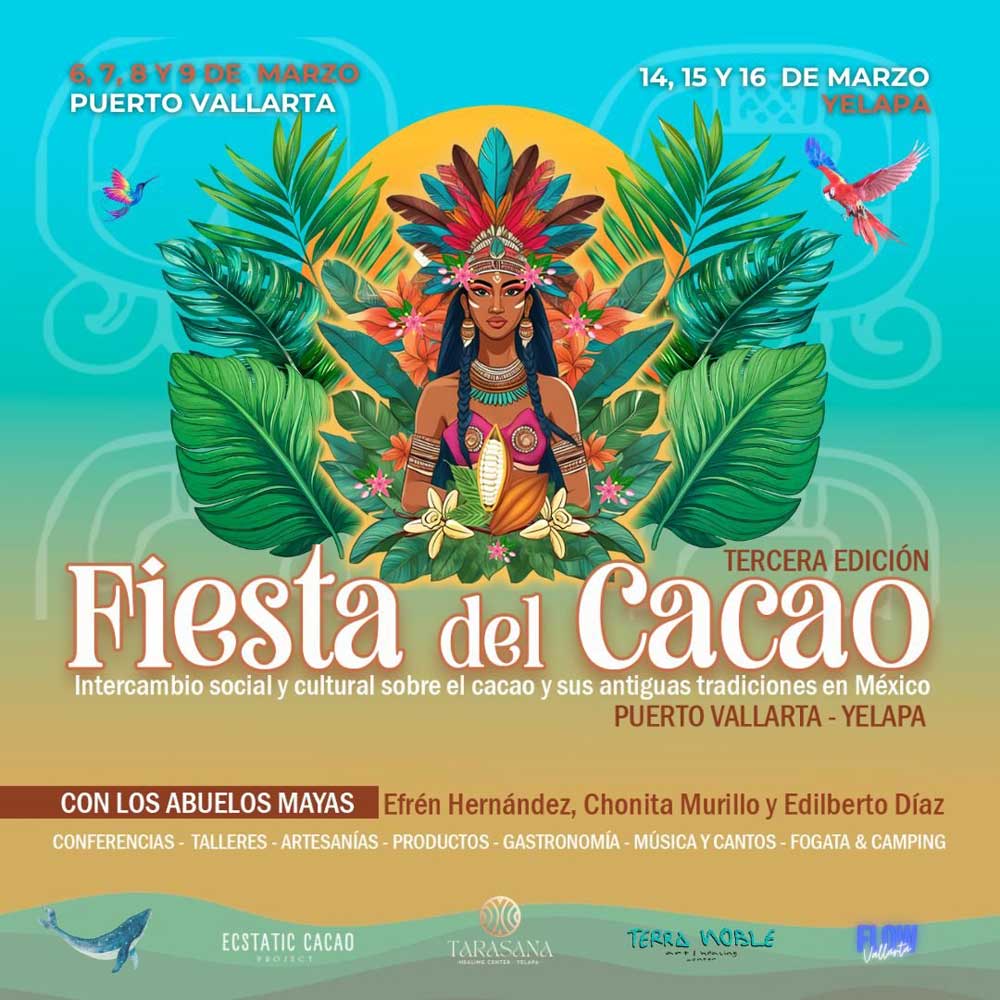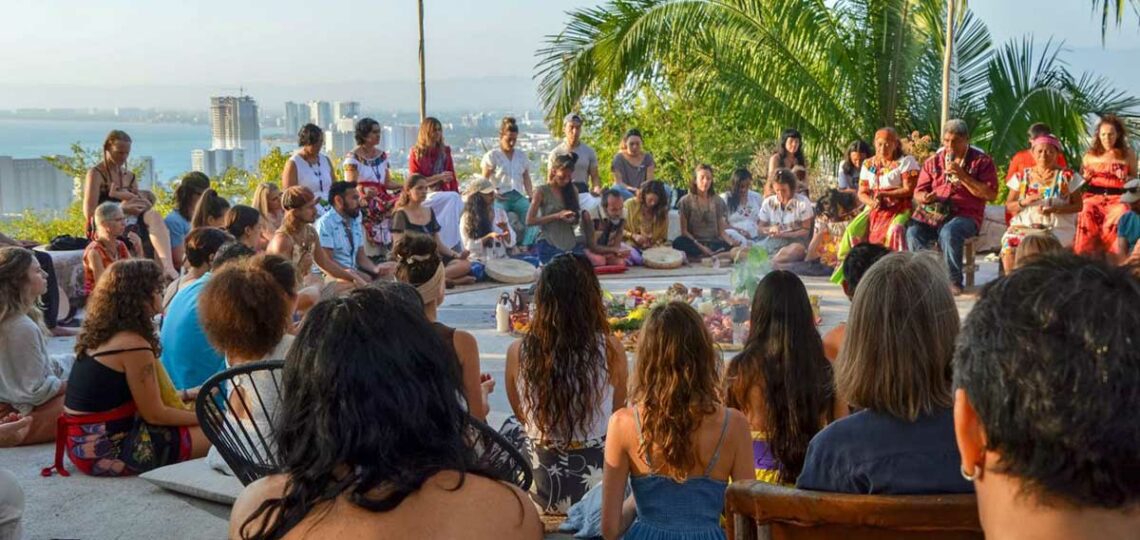
Cacao Festival Celebrates Mexico’s Heritage
The Third Annual Fiesta del Cacao (Cacao Festival) returns to Puerto Vallarta from March 6 to 9, inviting attendees to immerse themselves in the cultural and historical significance of cacao. Hosted at the breathtaking Terra Noble Art & Healing Center, the festival promises four days of enriching experiences, blending education, tradition, and community. While admission is free on Thursday, the cost to attend Friday through Sunday is 900 MXN per day, with a three-day pass available for 1,600 MXN.
At its heart, the Fiesta del Cacao is a celebration of cacao’s sacred role in Mexico’s heritage. More than just a food or commodity, cacao has been a fundamental part of pre-Hispanic civilizations, revered for its medicinal properties and spiritual significance. The event serves as a gathering space for cacao producers, artisans, and experts, creating opportunities for cultural exchange and knowledge sharing. It also offers a platform to strengthen local and sustainable trade, connect visitors with Indigenous traditions, and promote agricultural education through practical workshops and demonstrations.
The Fiesta del Cacao spans four enriching days, each offering unique experiences. Thursday serves as an introductory day with free admission, allowing attendees to explore the market and engage with cacao artisans. On Friday, the festival officially begins with conferences led by experts, hands-on workshops, and immersive activities highlighting the cultural and historical significance of cacao. Saturday continues with additional workshops, storytelling sessions, and a community dance under the stars. The festival concludes on Sunday with profound ceremonies guided by Maya elders, including a special healing ritual centered around cacao’s spiritual and medicinal properties. Each day provides a distinctive way to connect with cacao’s heritage, making the entire weekend a journey of discovery and celebration.”
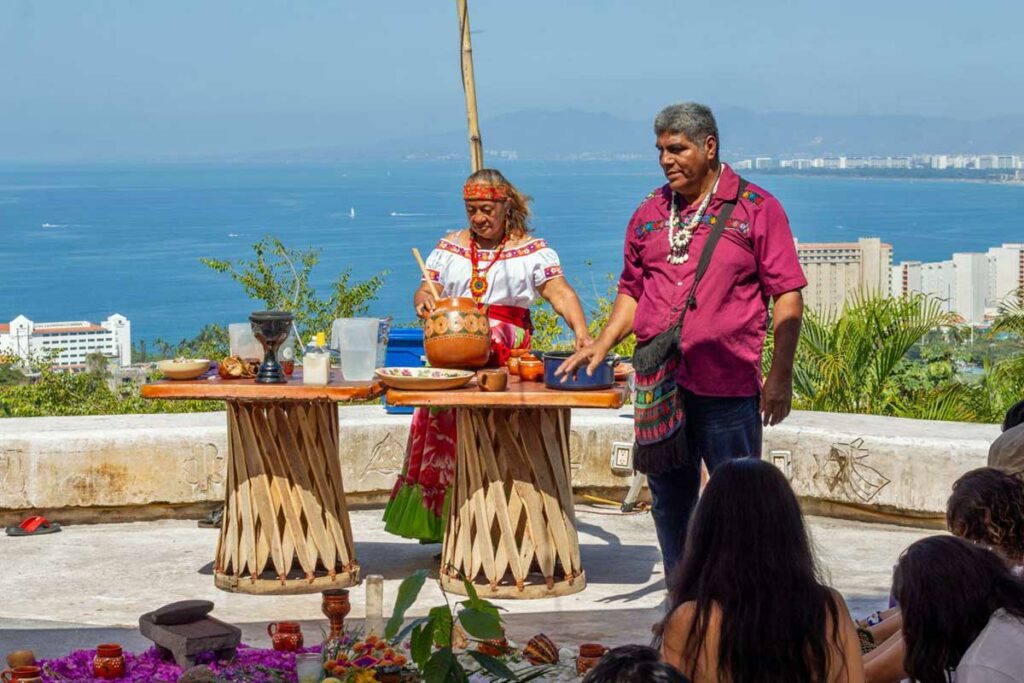
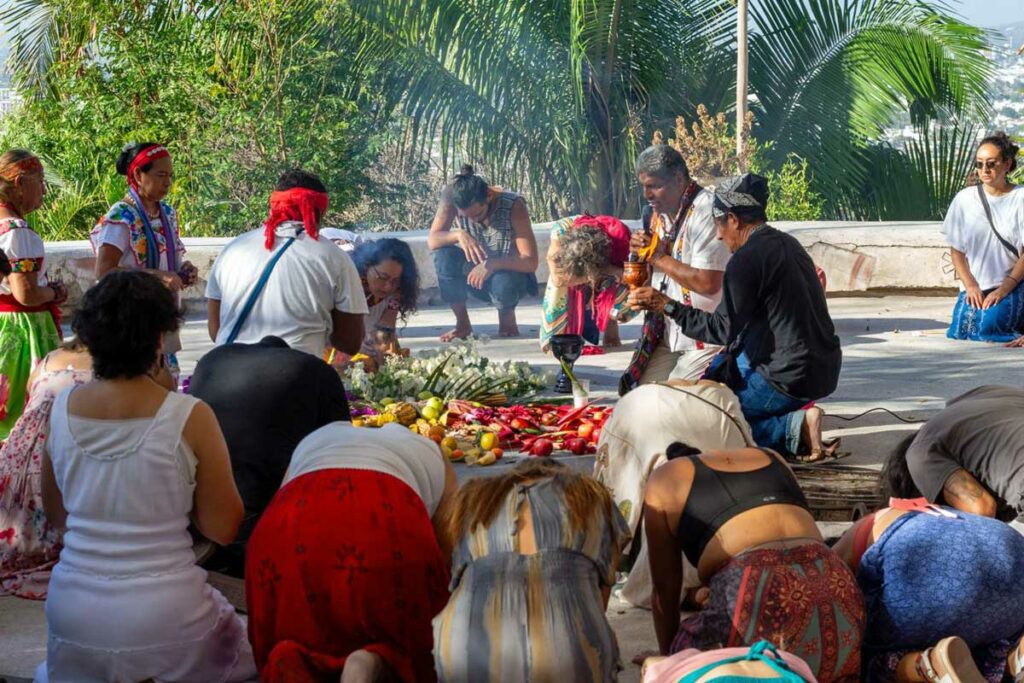
Festival founder Alberta Snelli describes her inspiration for creating this event: “As a lover of cacao and a pedagogist, I started using cacao in my daily life and activities with myself and my practitioners. I discovered that cacao had a very deep power to enter a more present state of consciousness.” This personal journey led her to research the origins of cacao and its traditions in Mexico, eventually connecting with Maya elder Efrén Hernández Maldonado. “Through this process, I found families, farmers, experts, producers, artisans, and researchers,” she adds. “I wanted to create an event that allows everyone to get closer to this beautiful and important knowledge, history, and culture, preserving it for future generations.”
A highlight of the festival is the presence of distinguished elders from the Maya communities of Tabasco, including Efrén Hernández Maldonado, Edilberto Díaz Cruz, and María Asunción Murillo Lozano. These respected figures are the custodians of ancestral knowledge, safeguarding the traditions that have been passed down through generations. Their presence adds a profound depth to the festival, as they share their insights on cacao’s role in community life, mythology, and ceremonial practices. “From their presence, we can learn the ancient wisdom and worldview surrounding cacao, how to prepare the 13 ancient cacao-based drinks, and even how to make our own chocolate paste,” Snelli explains. “We will also learn how cacao is cultivated according to ancestral agricultural methods and how their calendar works. Their message is one of love, and it has touched many hearts.”
The festival’s diverse schedule offers a wide range of activities catering to all interests. Through conferences, guests will delve into cacao’s history, its role in Mesoamerican cultures, and its contemporary significance. These sessions include Elder Efrén Maldonado’s exploration of cacao in the Mayan worldview, discussions on cacao’s mythological ties, and an archaeological perspective on pre-Hispanic cacao consumption. Additionally, experts such as Laura Aguilar and Cristóbal Enrique Córdova will examine the cultural and economic dimensions of cacao within Indigenous communities and modern trade systems.
For those eager to engage in hands-on experiences, the Fiesta del Cacao offers workshops on artisanal chocolate making, sensory identification of cacao varieties, and traditional agroforestry techniques. Participants can learn the intricate processes of toasting, peeling, and grinding cacao, as well as preparing sacred cacao drinks that have been integral to Indigenous cultures for centuries. These interactive sessions not only provide practical knowledge but also deepen attendees’ appreciation for the labor and craftsmanship involved in cacao production. “Through these workshops, we want to keep alive the oral traditions and ancestral knowledge that are not found in books,” Snelli notes.
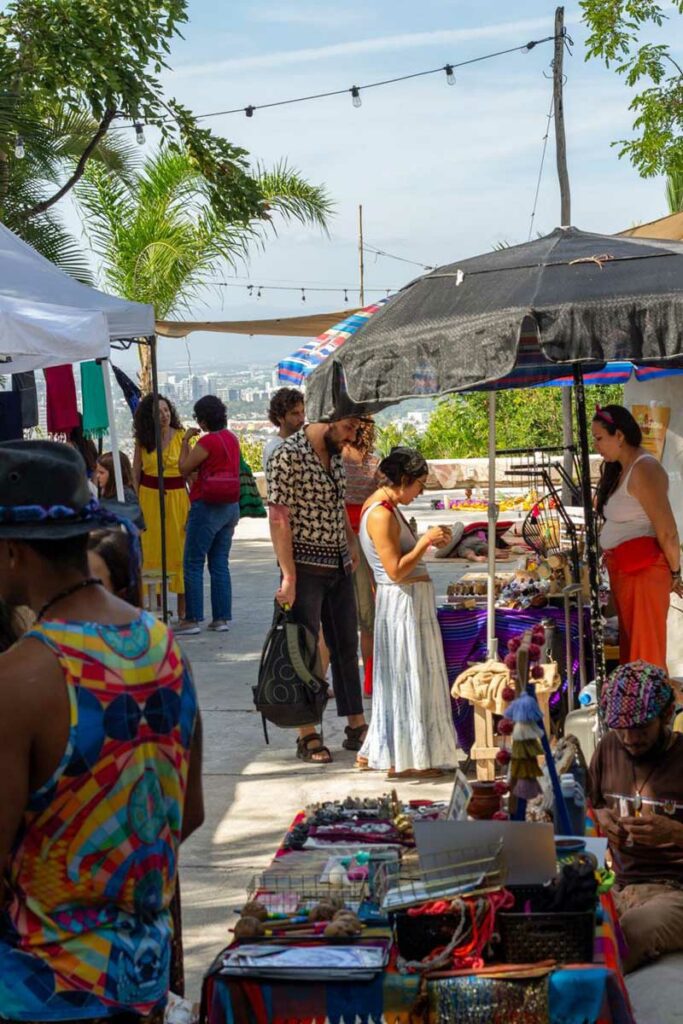
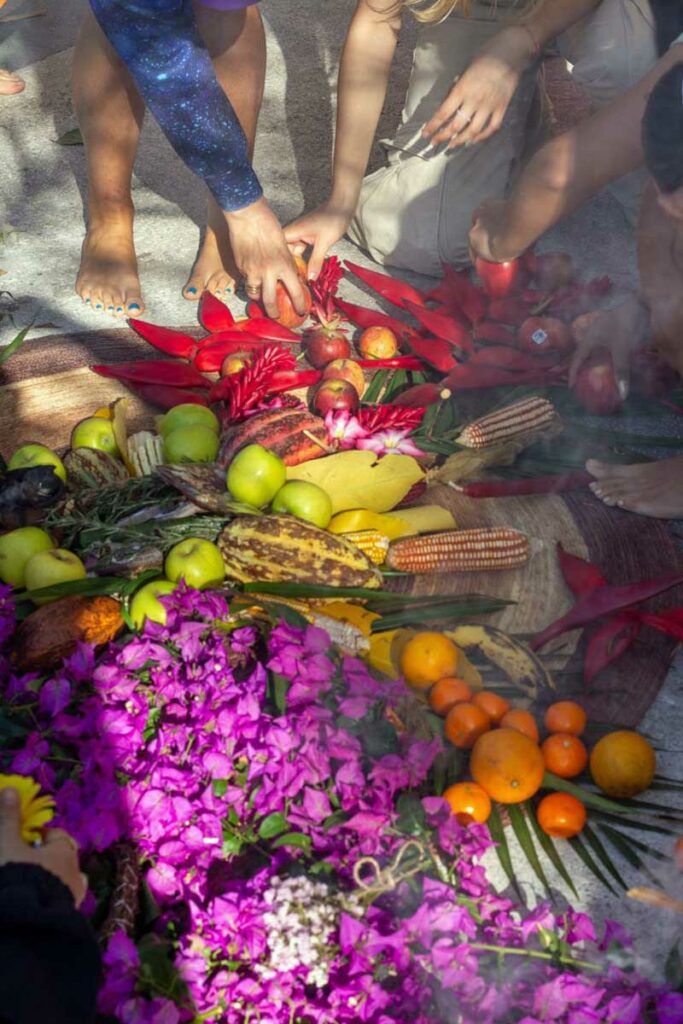
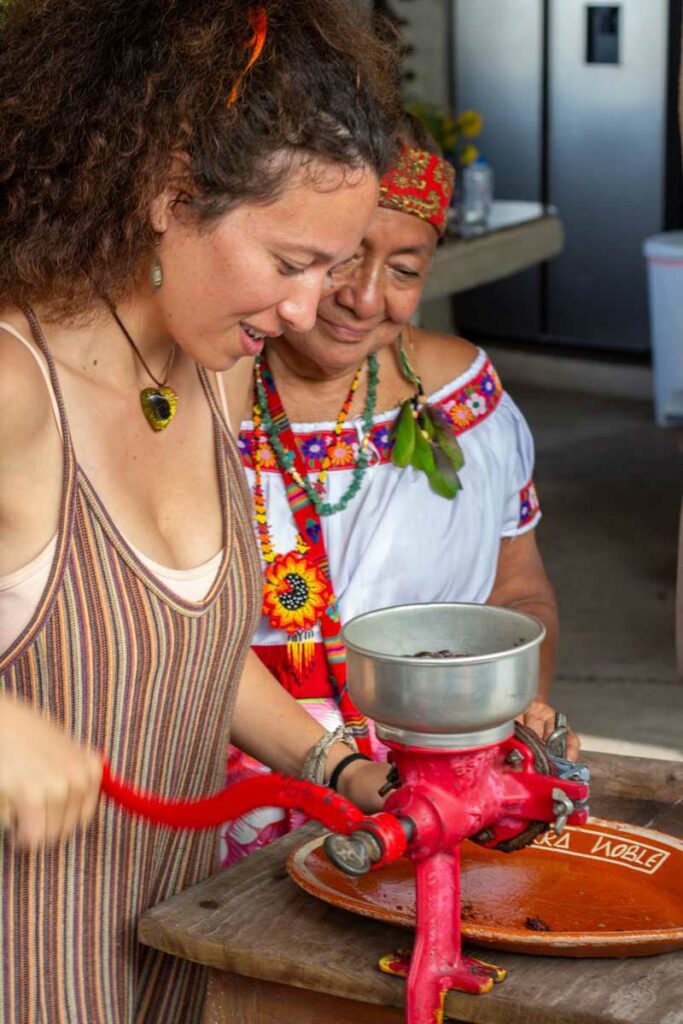
Beyond education, the festival fosters community and celebration. The cacao market will showcase a variety of cacao-based products, allowing attendees to meet local producers and artisans while sampling unique creations. “During all the days of the festival, we will have a market featuring artisanal chocolate products and handmade productions, both local and international. By inviting the local community and foreigners, we aim to facilitate a network of relationships among producers and the entire community,” Snelli emphasizes. Evening events add to the immersive experience, including a temazcal ceremony, a community dance, and the Weaving of Words night—a gathering around a bonfire to share stories, songs, and reflections under the stars. These moments of connection reinforce the festival’s mission of preserving traditions and building a sense of unity among participants.
The closing day of the festival features particularly profound experiences, including a healing ceremony guided by the Maya elders. This sacred ritual, centered around cacao consumption, offers attendees an opportunity to connect with the spiritual energy of cacao and receive guidance from the Indigenous wisdom keepers. The ceremony is an invitation to open the heart, embrace introspection, and appreciate cacao’s role in healing and transformation.
Sustainability is also at the core of the Fiesta del Cacao. “Through our conferences and workshops on the planting, management, and cultivation of cacao, and discussions on the cacao market and its sustainability, we want to expand knowledge and create more resilient social and agroecological systems connected to the land and the community,” Snelli says. She envisions the festival growing in future editions to include more involvement from schools, children, and the agricultural sector.
As cacao continues to gain global recognition, events like the Fiesta del Cacao serve as vital platforms for preserving and honoring its origins. The festival bridges the past and present, ensuring that the traditions, stories, and knowledge surrounding cacao remain alive and respected. “Cacao is not just food; it is also medicine, family, community, memory, culture, economy, and biodiversity,” Snelli asserts. “When we eat chocolate, we are choosing between corporate multinational systems or a more sustainable choice rooted in the land and its people. We all have a responsibility, and we can contribute to a better, more resilient future.”
Whether you are a chocolate enthusiast, a cultural explorer, or someone seeking spiritual enrichment, the Fiesta del Cacao offers a rare and meaningful opportunity to engage with one of Mexico’s most treasured legacies. Don’t miss this chance to celebrate cacao in its most authentic form. Join the Fiesta del Cacao in Puerto Vallarta for an unforgettable experience filled with learning, tradition, and community.

